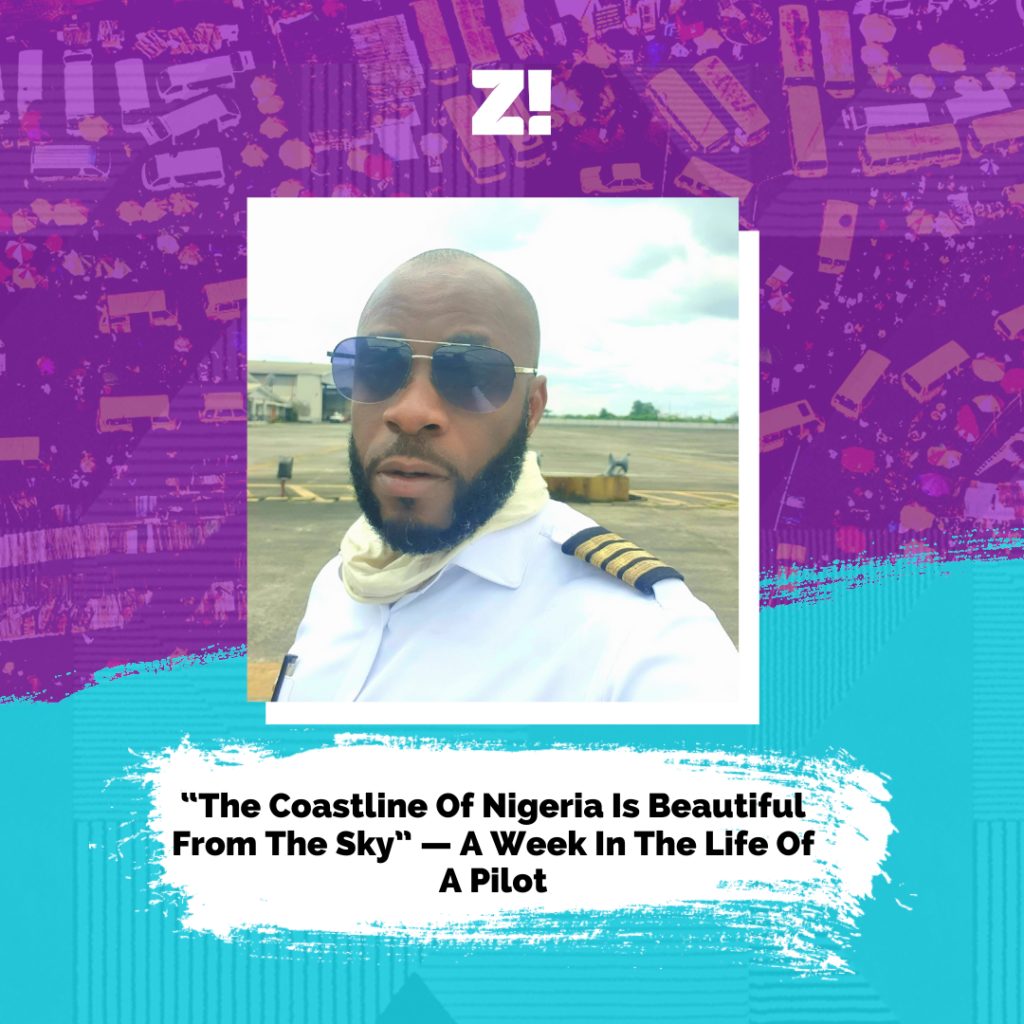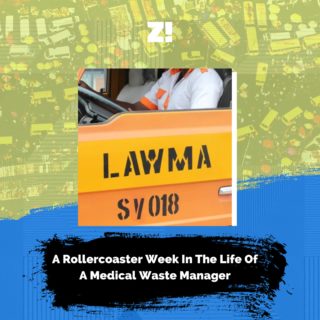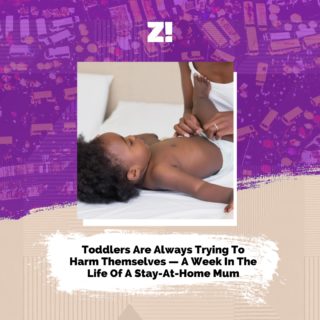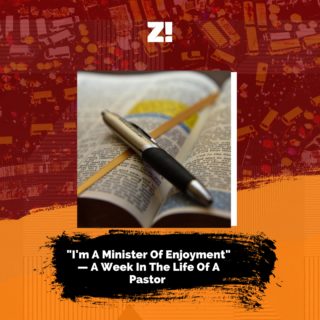“A Week In The Life” is a weekly Zikoko series that explores the working-class struggles of Nigerians. It captures the very spirit of what it means to hustle in Nigeria and puts you in the shoes of the subject for a week.
The subject of today’s “A Week In The Life” is a pilot and businessman. He tells us about the challenges of aviation in Nigeria, the best part of being a pilot, and the importance of friends.

MONDAY:
Let me tell you one cool part about being a pilot — one time I was stuck in a club in Florida and some hot chicks asked me what I did for a living. I was like, “I’m a pilot.” And they go: “OMG, you’re a pilot? Do you fly planes? That’s so cool.” I was like: “There’s nothing special about being a pilot.” [laughs] “but I’ll take the compliment.” Saying I was a pilot at that moment was an icebreaker that led to the most amazing conversation. In hindsight, that was a good time, unlike today where I have to wake up by 5 a.m. because I have to go to work. I love my job, but I also like stress-free life.
I’m up early because I want to use the gym for 30 minutes. After which I have to get ready for work because the staff bus arrives at 6:30 a.m.
I stay in the office “compound” because I do a rotation called 6 and 6; that is, six weeks on and six weeks off. In my off time, I can decide to “kill” myself as long as I resurrect myself back to work. There’s an aviation rule that you must have an off day in every consecutive seven day week: If you work Monday to Saturday, you must rest on Sunday. The rule also states that pilots are not allowed to fly more than 8 hrs a day, 30 hrs in a week, 100 hrs a month. If I hit the 100hrs limit in 20 days, I’m going to sit around doing nothing for the next 10 days. And all this is still when I’m on the job for six weeks. My work gives me time because I alternate between free days and busy days.
I spend my six weeks off work in Lagos, and the six weeks on duty is split between Aberdeen and Port Harcourt. Every six months, pilots are expected to do an operational proficiency check [OPC] exam to evaluate their competence and depending on the aircraft, the tests are held in either the US, UAE or Aberdeen. I’m the training captain for my company, so for one week, company pilots come to fly with me in Aberdeen as part of the fulfilment of their OPC. When I’m not doing that, I start and end my day in Port Harcourt.
TUESDAY:
In Nigeria, we have two functional flying schools: one in Zaria and the other in Ilorin. The Zaria school used to be the biggest in Africa but now South Africa has overtaken it. Now, I always advise people to go to the US for aviation school. I may be biased because I went there, but I believe that there are so many flying schools to choose from and the system is pretty straight forward. This is minus the fact that Nigerian schools don’t have enough aircraft for students. I’ve heard of cases where because students didn’t get enough flying hours, they ended up spending two years for a one year program.
When you’re fresh out of aviation school in the US, the best place to fly is in Nigeria. In aviation, we rate experience with hours spent in the air. So instead of saying I have 20 years experience, you’ll say I have X number of hours. As a Nigerian, you’re at a disadvantage competing against Americans for spaces because you have neither experience [hours] nor the means to gain them. Unlike Nigeria where pilots are few, there are many pilots in America. Therefore, it’s easier to get a job and gain hours when you come back to Nigeria.
The only challenge is dealing with Nigerian factors. While my company doesn’t have the Nigerian factor, I’ve heard tales…
Another issue is overbooking tickets with the hope that Lagos traffic or some other thing will make people miss their flights. To be fair, airlines all over the world overbook, but these airlines compensate you if everyone shows up and you don’t have a seat. In Nigeria, you’ll hear them say: “Oga you came late,” even though you’d been sweating on the queue for the past two hours.
I was gisting with my friend one day, and he told me that most companies use aviation in Nigeria for money laundering. These days, I’m starting to agree.
WEDNESDAY:
I can tell you how beautiful the creeks of the Niger Delta is, or how beautiful the coastline of Nigeria is from the sky. Alternatively, I can tell you how scattered and horrible Lagos looks from above. If you want a fun fact, I’ll tell you how the Abuja airport is located in between two mountains. Seeing the world from above makes you admire nature and the creator. As one who admires art and artwork, I’m in love. Sometimes, I’m just looking, marinating and taking in a scene.
This job has also given me the opportunity to meet people from all over the world. One time my company was working with the United Nations, and I got to share a cockpit with almost everyone from different parts of the world. Without necessarily going to some places, I know about their culture, tradition and food. There’s the guy from Bali who described his house to me in detail alongside fun activities to do there. There’s also my friend from Singapore who talked about the food. I’m thankful for the knowledge. It’ll help me fit in better when I eventually decide to visit.
It’s hard not to love this job. Today, I’m telling a colleague that the best-kept secret about being a pilot is that the job is not as complicated as people think it is. Yes, you need to be relatively smart and intelligent to do it, but I don’t think it’s difficult. I’m probably saying this because I’ve been flying for 11 years, and I’ve witnessed many scenarios. I tell people that I don’t think pilots get paid for what we do. We get paid for what we may have to do. Every day a pilot takes off and lands without a problem is a good day. The day you lose an engine or your plane has a hydraulic problem — that is, shit hits the fan — is when you know who’s the real pilot and who has just been sitting there doing take-offs and landing. God no go shame us.
THURSDAY:
Due to the exchange rate in Nigeria, we earn at ₦365 but spend at ₦490. It’s unfortunate and it hurts me badly and that makes me broke.
Then there’s also the societal expectations of a pilot. Pilots earn good money, but I still find myself anxiously waiting for my paycheck. Somebody who earns less than I do probably looks up to me thinking my salary will set them up for life. The truth is that more money equals more problems. Apart from the extravagance that sets in when you have a higher disposable income, there’s pressure on all sides. Every uncle, aunty, cousin, nephew, friend of friend wants you to give them money. At the end of the day, if you’re not careful, you’ll find out that you’ve finished spending all that “big pay.”
Today, I’m counting my blessings. I’m grateful for what I have and what is yet to come.
FRIDAY:
In ten years time, I honestly don’t think I want to be actively flying. I hope that by that time, some of my current businesses have become million-dollar companies so I can go to the Bahamas, cross my legs and do something with my life.
I was telling some people that if you have another business that makes you a lot of money, you’ll suddenly start to see how dangerous this job is. One day someone will scare you and do one horrible landing or take off, then you’ll tell yourself, “I think it’s time to draw the curtains. It’s time to go.” For now, the pay is still distracting us.
I’m glad that today is Friday. I’m looking forward to getting off work, drinking Ciroc and having conversations with friends. After all, friends are part of the reason why we smile in this difficult world. I can’t imagine how lonely it’d be if I had no one to talk to about my wins, frustrations and even my dreams. It’s never lonely at the top if you have friends there with you.
Check back every Tuesday by 9 am for more “A Week In The Life ” goodness, and if you would like to be featured or you know anyone who fits the profile, fill this form.
COMPONENT NOT FOUND: donation



